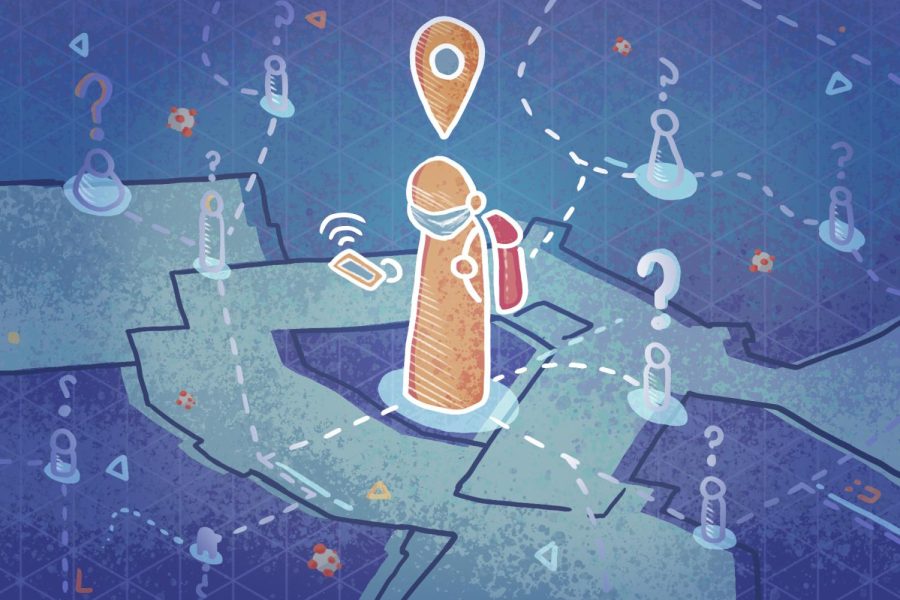MCPS ends contact tracing in schools
MCPS decided to remove its practice of contact tracing in schools, leaving some community members concerned about COVID-19 virus transmission.
May 12, 2022
MCPS ended its COVID-19 contact tracing program on May 2 to align with recommendations from the county’s Department of Health and Human Services. The school district first announced the change in a community message on April 26, citing past health guideline adherence that mitigated the spread of the virus as a factor in the decision to end the program.
Previously, MCPS worked with school staff to identify students who had been exposed to the virus by collecting information such as classroom seating charts and active cases. While the school system no longer alerts individuals who have been in close contact with students or staff members who tested positive for COVID-19, it will inform individual classes, grades or schools of positive cases “as appropriate,” MCPS officials wrote.
The school district will continue to report daily cases at each school on its COVID-19 Dashboard. In the event of a substantial rise in cases, MCPS will “conduct contact tracing” and may possibly turn to other mitigation strategies to reduce virus transmission, according to the community message.
In an email to The Black & White, Whitman school nurse Marissa Guerrrero wrote that she plans to abide by the Centers for Disease Control and Prevention’s (CDC) updated contact tracing plan, that the new MCPS policies adhere to. This includes contacting people who have contracted the disease and distributing COVID-19 testing kits.
“We keep track of changing policies as they evolve,” Guerrero said. “We will work with MCPS to monitor cases in our schools and will do contact tracing if outbreaks occur.”
From April 30 to May 8, the school district reported 1450 COVID-19 cases among students and staff; this statistic included 15 positive cases from Whitman, according to data from the MCPS COVID-19 School Dashboard.
History teacher Richard Obando said that he supports the recent changes to MCPS’ contact tracing policy, and believes that contact tracing is no longer necessary due to the low number of cases at Whitman and across the country.
“The COVID-19 positivity rate is not high enough to justify taking those extra steps,” Obando said. “If the rates creep back up in the next few days or weeks, then contact tracing should be reimplemented but if the data doesn’t really justify the effort, I don’t see why I’m ready to continue with tracing.”
The number of active quarantined students in MCPS has decreased from its peak of 15,191 in January to 6,689 in April.
Sophomore Maria Samos felt concerned about the termination of contact tracing after being in close contact with students who tested positive, she said.
“I understand ending contact tracing is a big step towards ending this pandemic,” Samos said. “But I think MCPS should still let people know about any recent contacts with people who have tested positive, just in case you have somebody at home with an auto-immune disease.”
The school district wrote in their message that they would continue to monitor positive case trends in schools and make adjustments to virus prevention policies in order to ensure a safe learning environment for students and staff.
Despite implementing changes to its contact tracing program, MCPS will also continue to support vaccination clinics in schools and offer individual randomized testing for students.
“In general, the trends in the pandemic are good and promising,” Obando said. “But we’ve had these false hopes in the past only to be disappointed by more variants.”









